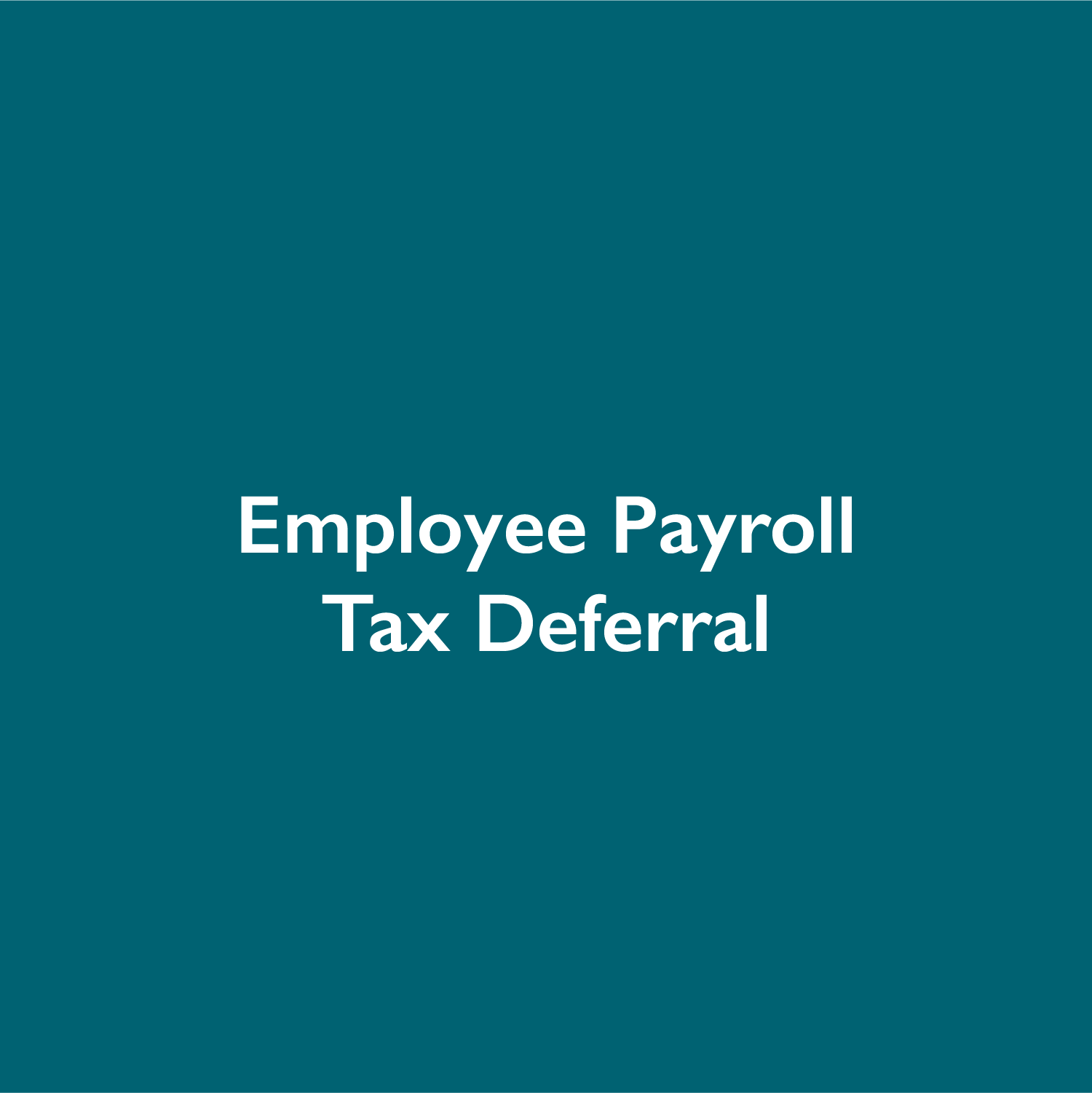by Nicholas Sanchez, J.D., LL.M. Taxation
On August 8, 2020, President Trump issued a “Memorandum on Deferring Payroll Tax Obligations In Light of the Ongoing COVID-19 Disaster” (“Memorandum”) in which he directed Treasury Secretary Mnuchin (“Secretary”) to defer the withholding and payment of the employee share of Social Security tax. The Memorandum provides that the deferral applies to any employee whose wages are less than $4,000 during any bi-weekly pay period and that amounts deferred would not be subject to any penalties or interest. The Memorandum further directed the Secretary to issue guidance to implement the deferral and to also explore avenues, including legislation, to eliminate payment of the deferred taxes.
The employee share of Social Security tax is withheld from wages at the rate of 6.2% on wages up to $137,700. The Social Security tax is one of two components of Federal Insurance Contribution Act (“FICA) taxes, the other component of which is the Medicare tax.
On August 28, 2020, after weeks of speculation about how the deferral would be implemented, the Treasury issued guidance in the form of IRS Notice 2020-65, “Relief with Respect to Employment Tax Deadlines Applicable to Employers Affected by the Ongoing Coronavirus (COVID-19) Disease 2019 Pandemic” (“Notice”). The Notice provides that the due date for withholding Social Security tax (or the equivalent railroad retirement tax) (“Applicable Taxes”) on “Applicable Wages” is postponed until the period January 1, 2021 through April 30, 2021.
In turn, “Applicable Wages” are defined in the Notice to mean wages paid to an employee on any pay date during the period September 1, 2020 through December 31, 2020, but only if the wages for a bi-weekly pay period is less than $4,000 (or the equivalent threshold for other pay periods). Consequently, generally only employees with annual compensation of less than $104,000 are eligible for the deferral. However, the Notice indicates that the determination is made on a pay-period by pay-period basis. For example, an employee that receives more than the threshold during a pay period may still be eligible for the deferral in a subsequent pay period in which she receives less than the threshold.
The Notice states that an “Affected Taxpayer” (i.e., the employer) must withhold and pay the total Applicable Taxes that were deferred ratably from wages paid between January 1, 2021 and April 30, 2021. The Notice also states that employers “may make arrangements to otherwise collect the total Applicable Taxes from the employee.”
While the Notice provided much needed guidance, it also raised new questions, including whether employers are required to participate in the deferral and, if so, whether employees may opt-out. On September 3, 2020, the IRS clarified that employers may, but are not required to participate in the deferral. Employers have the “controlling choice,” not employees; as such, employers are not obligated to implement the deferral even if employees want to participate.
Still, many issues remain. If employers do not participate in the deferral, but Congress subsequently passes legislation providing that deferred taxes do not have to be repaid, may employees still benefit by, for example, claiming a refund of excess Social Security tax withheld on their individual tax returns? Further, given the Notice makes clear that employers are responsible for payment of the deferred Social Security tax, it isn’t clear how an employer can recoup the deferred tax from an employee that separates from employment (either voluntarily or involuntarily). The Notice only indicates that employer “may make arrangements” to collect the tax without further elaboration. Can the deferred taxes be withheld from a final paycheck or severance pay? Employers should consider how to collect or absorb the tax under these circumstances.
There are also questions about how employers will report the deferred taxes. The IRS has released a draft revised Form 941 (“Employer’s Quarterly Federal Tax Return”) on which employers report Social Security tax. The draft form contains a line item for the deferred taxes and a subsequent revision will likely contain a line for the payment of such deferred taxes. The IRS may need to revise Form W-2 as well, as Social Security tax withheld (reported in box 4) will not reconcile with Social Security wages (reported in box 3).
The deferral also poses substantial logistical complexities, including the challenge of implementing the change in payroll systems, as well as practical concerns, such as the burden imposed on employees during the first four months of 2010 by double withholding of Social Security.
____________________________________
We highly recommend you confer with your Miller Kaplan advisor to understand your specific situation and how this may impact you.



